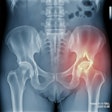
The Arab uprising that began in December 2010 and subsequent conflicts have led to significant health issues and lowered average life expectancy in much of the eastern Mediterranean region, according to research published online on August 24 in Lancet Global Health.
After comparing data from the 2010 and 2013 Global Burden of Disease Study for 22 countries in the eastern Mediterranean region, a research team led by Ali Mokdad, PhD, of the University of Washington in Seattle found that the decline in average life expectancy in some countries -- Syria, Yemen, Libya, Tunisia, and Egypt -- was high enough to potentially reverse health gains achieved over the past two decades. The findings highlight an immediate need to invest in healthcare systems in these countries, according to the group.
"Recent conflicts have shattered the basic infrastructure in a number of countries," Mokdad said in a statement. "As a result, millions of people are facing dire water shortages and poor sanitation that will lead to disease outbreaks, which must be controlled."

Syria has been particularly hard hit; men in Syria had a life expectancy of approximately 69 years in 2013, down from around 75 years in 2010. The average life expectancy for Syrian women declined from 80 in 2010 to 75 in 2013. What's more, Syria's child mortality rate is now at higher than countries in sub-Saharan Africa. While infant deaths in Syria had dropped by 6% a year in the decade before 2010, deaths increased by 9.1% a year between 2010 and 2013, according to the team. Meanwhile, the average life expectancy in Yemen, Tunisia, and Egypt declined by approximately three months between 2010 and 2013.
As troubling as the findings are, the decline in health conditions in many eastern Mediterranean countries is likely to have become worse since the study was undertaken, according to the group. In 2013, the wars in Syria and Libya intensified, and there was continued or new unrest in Yemen, Lebanon, Afghanistan, Iraq, and Somalia.
"This region has historically seen improvements in life expectancy and other health indicators, even under times of stress," Mokdad noted. "But the Arab uprising has evolved into complex wars that have killed hundreds of thousands of people and displaced millions. Along with population growth and aging, these ongoing conflicts have dramatically increased the burden of chronic diseases and injuries, and many health workers have fled for safer shores. These issues will result in deteriorating health conditions in many countries for many years and will put a strain on already scarce resources."
The study was funded by the Bill and Melinda Gates Foundation.
In an accompanying comment to the article, Dr. Riyadh Lafta of Al-Mustansiriya College of Medine in Baghdad said that the growing burden of diseases and injuries requires sincere efforts; realistic plans; adoption of new approaches and skills to continuously evaluate and analyze the situation, proposal, and implementation of plans for prevention and control measures; and improvement of health services to lessen the effect of the burden of conflict.




















